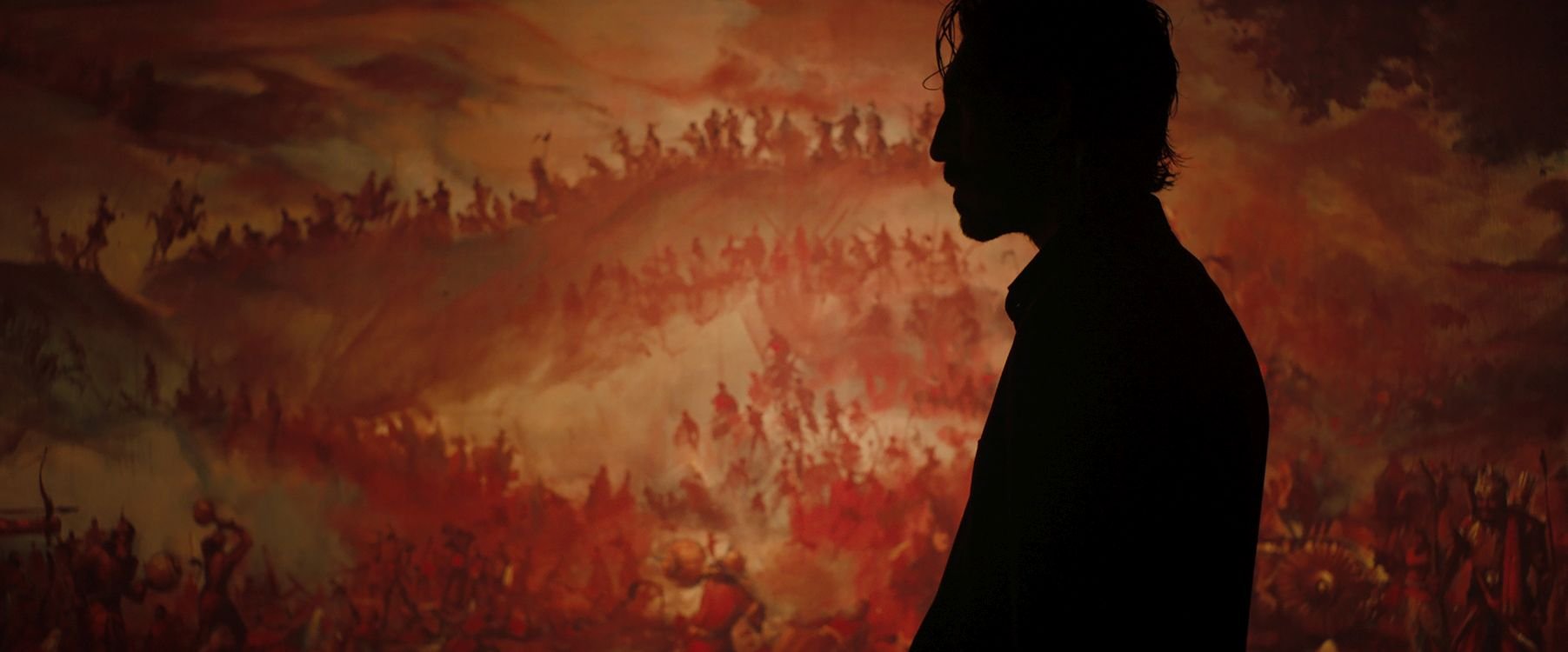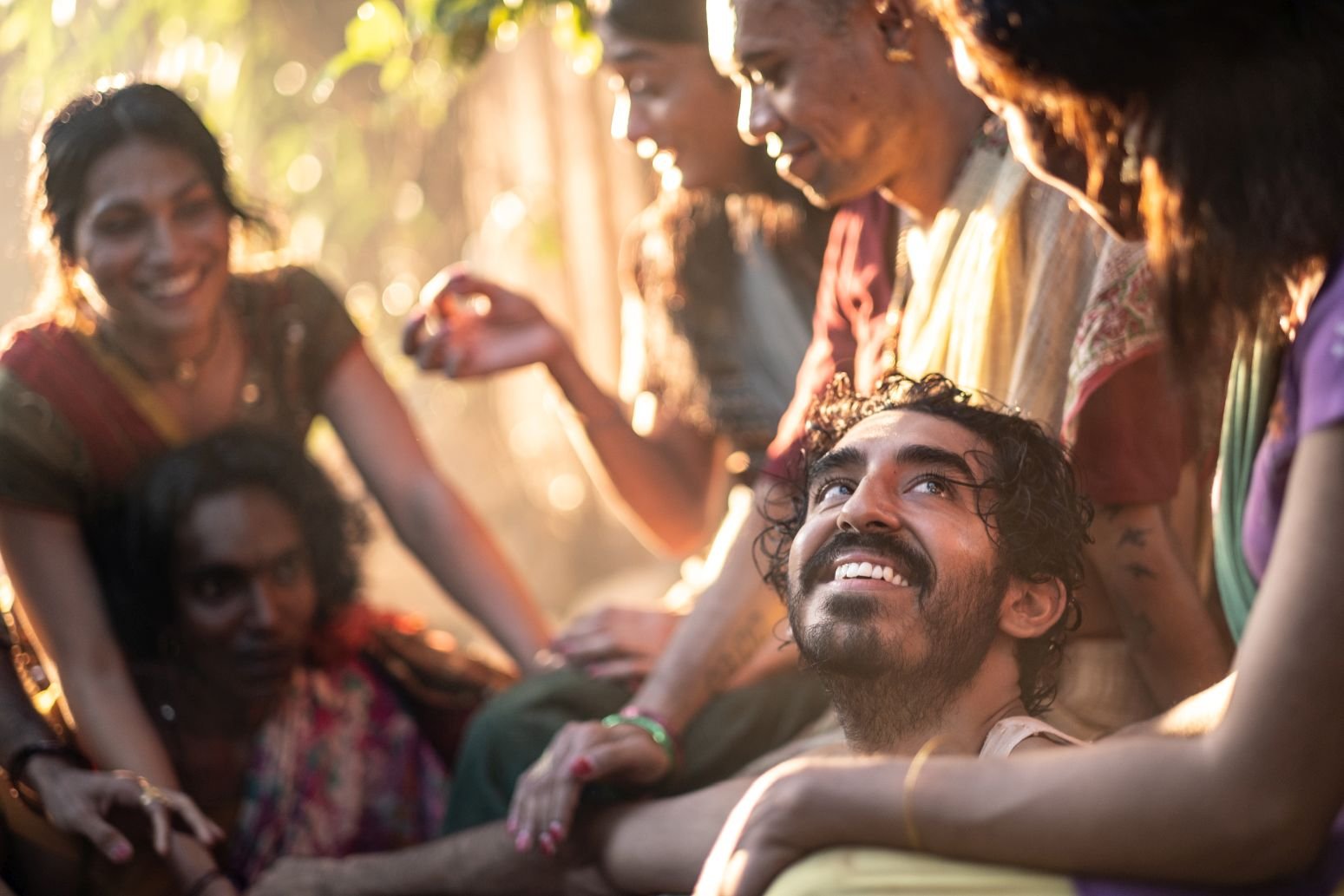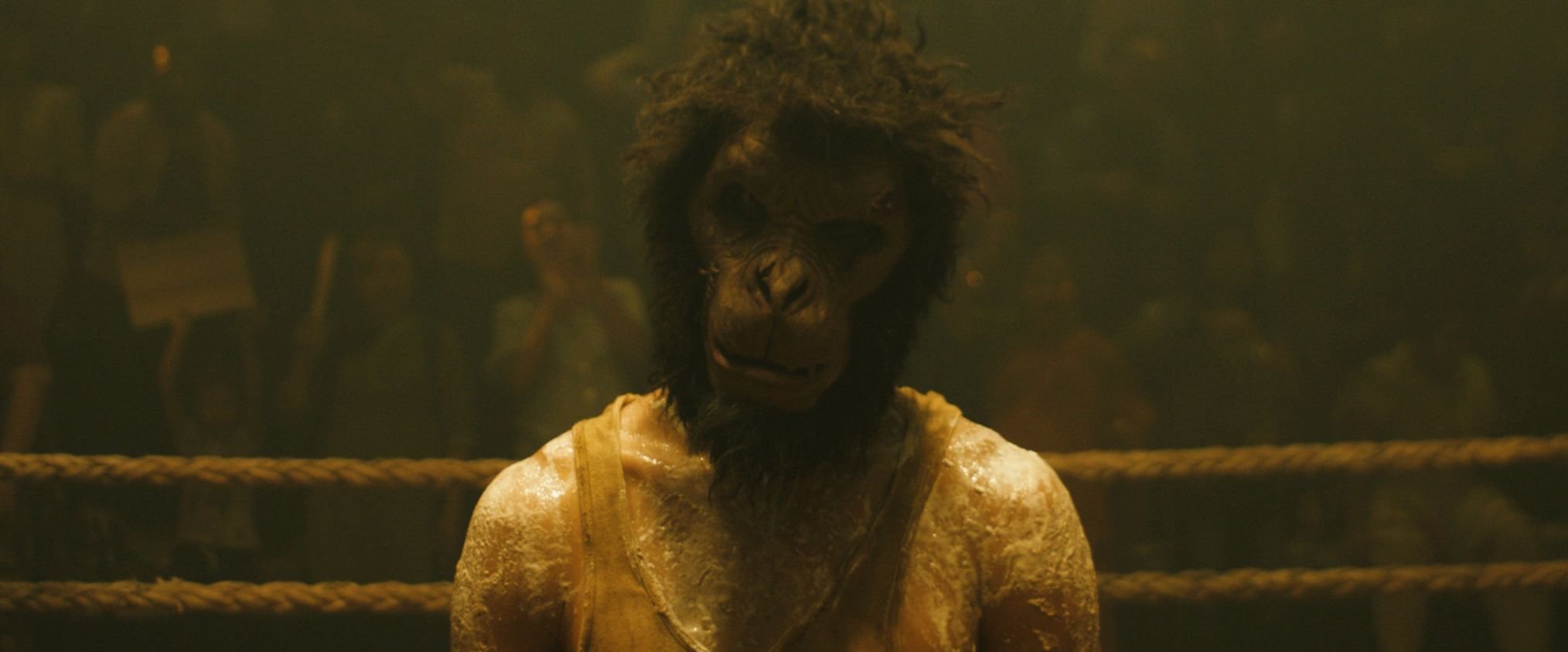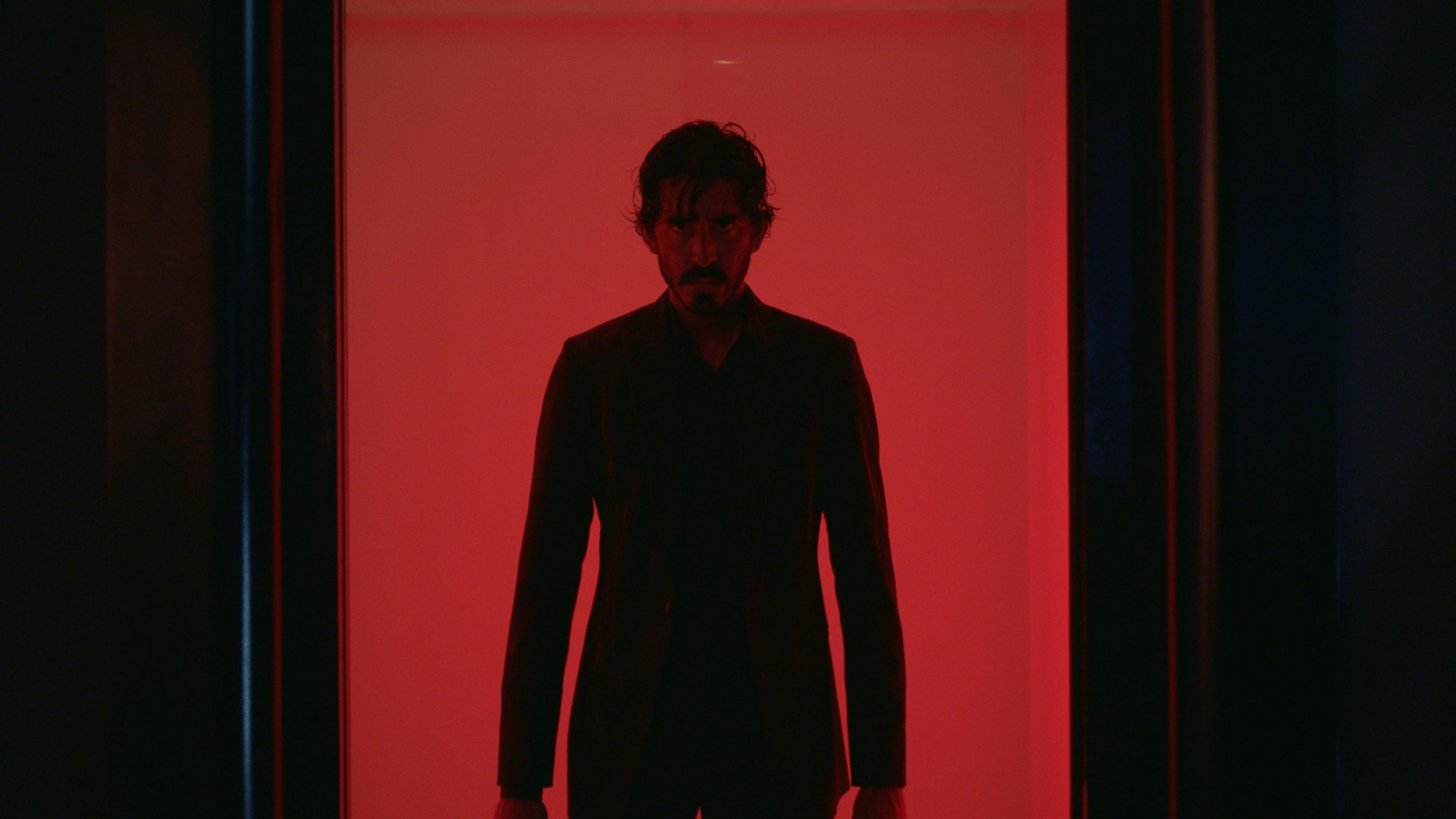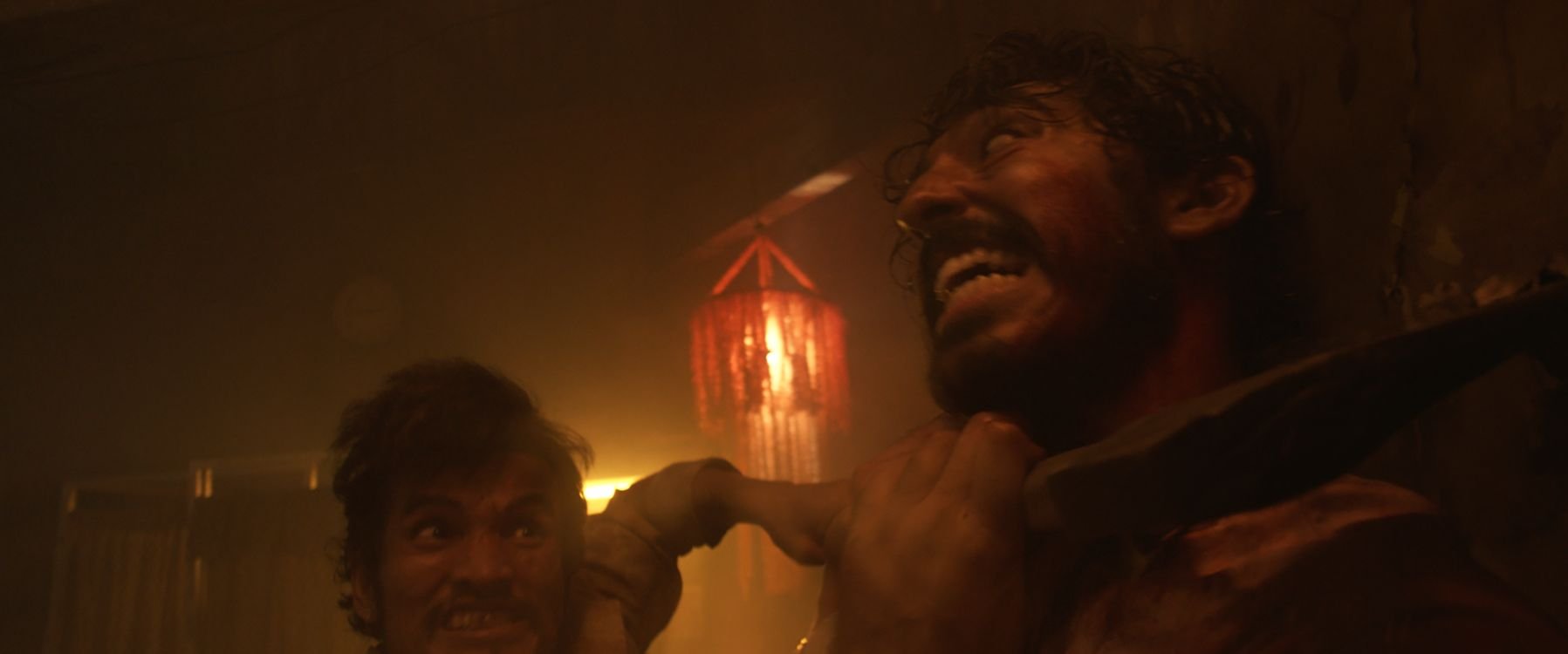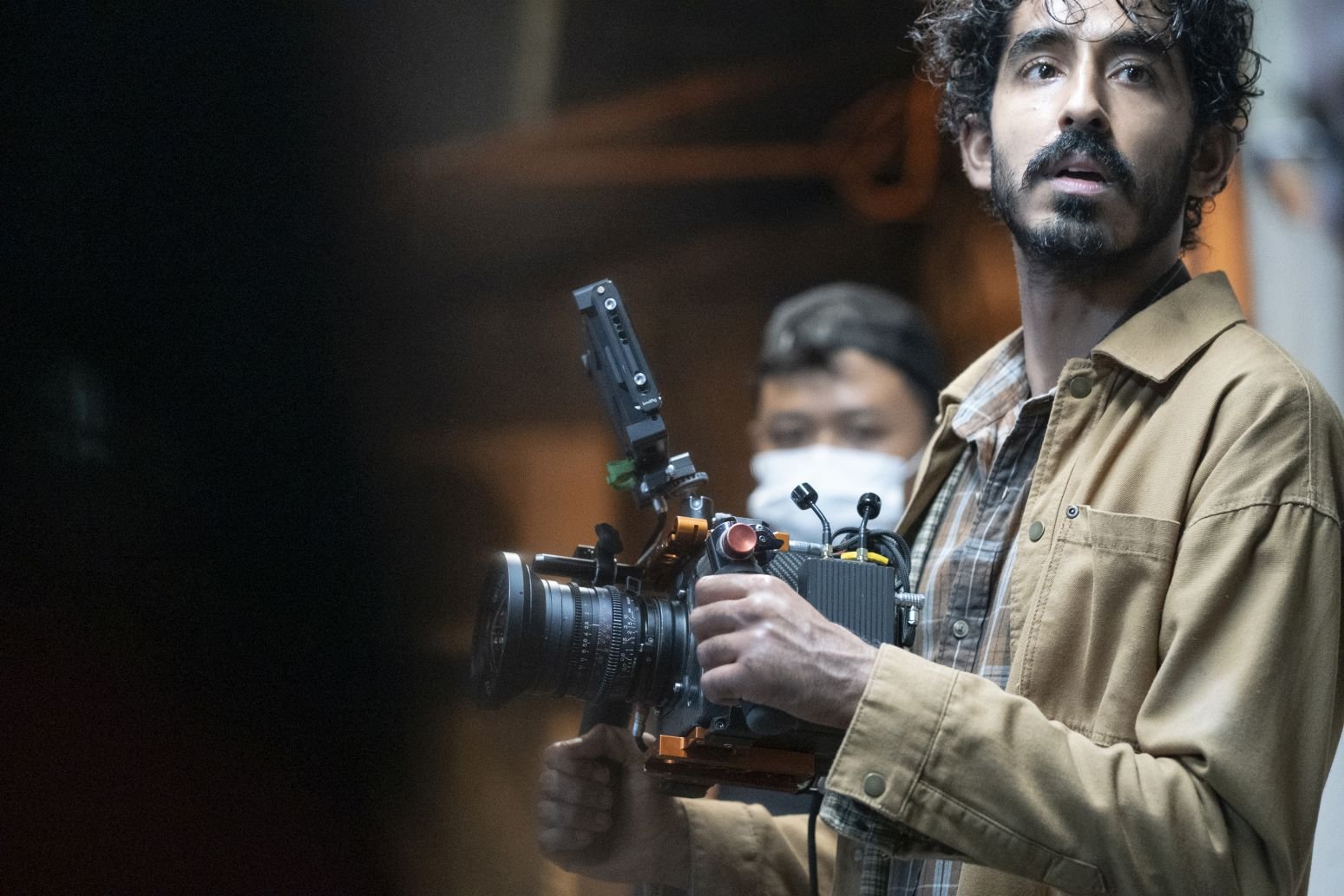MOVIE REVIEW: Monkey Man
MONKEY MAN– 4 STARS
The footprints of the archetypal “hero’s journey” have criss-crossed every continent and culture on this planet. Those who idolize or worship those divine stories of myth carry those inspirations into the magic of making movies, which, as we all know, have long been a haven for dream fulfillment through artistic expression. Actor Dev Patel, making his directorial debut with Monkey Man, shows that very awe and reverence on the screen and behind the camera. The Brit has brilliantly taken one hallowed hero’s journey of a foreign culture, injected it with virtuous blood, and smeared it with the caustic acid of present day social evils.
LESSON #1: THE LEGEND OF HANUMAN– A little literary and historical primer would go a long way to approaching Monkey Man. The core flashbacks of this movie’s internal history show a mother and son often speaking of the Hindu deity Hanuman. The legend of this anthropomorphic monkey– emboldened with traits of self-control, protectiveness, and chastity– dates back over two millennia and spans an Icarus-ian origin of childhood failure to an immortal resurrection leading to many superpowered exploits slaying adversity and demons alike.
Hanuman is the formative bedtime story held tightly by our anonymous main character (Patel) only credited as “Kid,” and it is just fantastical enough of a root to blend outrageous feats of action and heroism with the gritty reality of Monkey Man’s setting. The emulation is so strong that our protagonist fights under a monkey mask as a punching bag heel in underground gambling arenas run by a sleazy and bardic fight promoter (and underused and overqualified Sharlto Copley) within the city of Batam in Indonesia.
Let me just say quickly that Kid’s monkey mask– designed by Eddie Yang of Symbolic Arts, a sculpting specialist who has collaborated with makeup and special effects greats Rick Baker and Stan Winston– is one of the most bracing movie masks possible, right there with the Ghostface mask from the Scream series, Hannibal Lector’s facemask in The Silence of the Lambs, and Leatherface himself from Texas Chainsaw Massacre fame. That simple prop provokes immediate and jarring intrigue into the figure wearing it, especially when it’s backlit by ring lighting to highlight the wild, thatched hair edges and dripping the pugilist’s own blood. Patel and company could have leaned on that instant iconography all movie long to make the second coming of Bloodsport or Mortal Kombat and satiated many action fans at the entry level.
But there’s a tremendously greater story to tell in Monkey Man, and it belongs to Kid underneath and away from the mask. As a child, Kid’s mother Neela (Adithi Kalkunte of Hotel Mumbai) was murdered by the brutal Chief of Police Rana Singh (international TV star Sikander Kher) working for the political prophet Baba Shakti (Jailer’s Makrand Deshpande) to clear the forest villages of potential citizen uprisings. For years, Kid has been seeking violent retribution for that loss.
Kid’s opportunity for vengeance comes when he is able to infiltrate the elite Kings club frequented by Singh and run by the villainous Queenie Kapoor (Andhadhun’s Ashwini Kalsekar) with the guise of good graces returning stolen property. Scoring a job as a resourceful dishwasher and janitor, Kid quickly ingratiates himself with Queenie and his manager Alphonso (Pitobash of Metro Park TV series) to become a tuxedo-ed server on the upper VIP floors putting him in reach of Singh. He spends weeks practicing his assassination plot, only to learn that the malicious corruption of this decadence and power only begins with Chief Singh and reaches the highest offices of the city.
LESSON #2: THE LARGER PLIGHT THAN ONE’S OWN– By venturing through the connected parties held under the thumb of despotic control, Kid finds a purpose higher than his own pain. In his quest for revenge, Kid is aided by the shunned transgender community, led by Alpha (Vipin Sharma of Like Stars on Earth), forced to hide from the rest of society and Shakti’s oppositional wrath. By this middle point in Monkey Man, the enforcement and strife created by larger public policies have been stacked onto the mano-y-mano revenge thriller chassis. Warriors become warriors and allies become allies.
Those now-ingrained additions become both boosts and hindrances for Monkey Man. On one hand, the firebrand-ed callout and pushback found in this social commentary adds causes of heft, unity, and freedom to the overall adventure, making it more substantial than a basic fight movie. However, these prescient layers do take away from the razor-sharp simplicity of a grown son avenging his mother. The second act spends the meat of its time chronicling a period of recovery, regrouping, and improvement for Kid mentored Alpha that saps some of the kinetic momentum of the movie.
Luckily, in between that second act, and especially when it’s time for Kid to resurface and throw down, Monkey Man hits a vigorous stride that is absolutely blistering. Few people may have the knowledge that Dev Patel– yes, that same slight and svelte man from poignant dramas like Slumdog Millionaire, Lion, and The Green Knight– is a 1st degree black belt in taekwondo. Well, after this movie, they’ll surely know now. Fight coordinator Brahm Chab (Iron Mask) and stunt coordinator Udeh Nans (The Raid series) make the lead actor, his stunt double, and his dozens of opponents take inventive punishment and look like a million bucks. Mr. Patel has found a new film genre to dominate if he wants to.
Once again, it would have been easy in Monkey Man to just point the camera at scripted matches of tough guy versus tough guy with crowd reaction inserts. Instead, with the deeper story to tell, Dev Patel shows that he has style as a filmmaker and employed predominantly non-studio artistic talent to bring it out. The production design and art direction by Pawas Sawatchaiyamet and Ahmad Zulkarnaen capture both the rich ethnic textures and the tangible poverty seeped into this setting. Even with reused action settings like the fight arena and the Kings club, no two action scenes look or feel the same, thanks in part to the untamed photography of Sharone Meir that whips as if on a yo-yo’s string at times. The Whiplash cinematographer found a middle ground between points of static focus amid the radiant color and lighting choices and the times to shake along with the cardiovascular action in front of it.
Most will come away from Monkey Man going on and on like that last paragraph to praise the carnality of this movie, and rightfully so. That strapping and blood-soaked athleticism is what is going to draw the hoots and hollers at public screenings and fire up future YouTube fight breakdowns. Sometimes action for action’s sake can come up empty for greater meaning and audience investment. Without anchors to care about, the fun of it all can be meaningless. This movie does not make that mistake. That’s why Monkey Man’s passionate heart should be praised as highly as its physicality.
LESSON #3: DON’T LOSE HEART– When Dev Patel spoke about his goals for Monkey Man at the 2024 SXSW Film Festival, he said wanted to give the film “real soul, real trauma, real pain” the audience deserved. When the fists aren’t flying, the movie holds an emotional core resting on this lesson’s statement of a mother’s wish that would become an adult child’s fuel. Patel uses the visual motif of a clean and pure creek shared by mother and son as an accompanying symbol to the Hanuman tale for the reform and correction being sought by Kid. Because Monkey Man exudes those three qualities of dedicated power sought by Patel, the result is a hungry dark horse movie never satisfied by anything basic.
LOGO DESIGNED BY MEENTS ILLUSTRATED (#1189)


